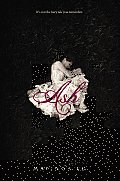
| Series: | Ash #1 |
| Publisher: | Little, Brown |
| Copyright: | September 2009 |
| Printing: | October 2010 |
| ISBN: | 0-316-04010-X |
| Format: | Mass market |
| Pages: | 264 |
Aisling (Ash) lives near the Wood, formerly a place of wild magic and fairies, with her mother and father. The Wood has slowly become less magical with human settlement, but the people where she lives still remember the old stories and hold them close, and her mother has training as a witch. Her father's sympathies lean towards the beliefs of the more urban south, shaped by the philosophers of a southern empire who dismiss fairies as suspicion. But his love of Ash's mother is stronger than his skepticism.
Ash opens, however, with Ash's mother's sudden death from illness (and Ash's first personal encounter with fairies), and shortly afterwards, her father goes south to the Royal City. When he returns after some months, he's remarried, and Ash has a step-mother and two step-sisters, none of whom believe in fairies or have any patience for Ash's mother's traditions. Then matters go from bad to worse when Ash's father falls sick as well.
As you might have guessed, or heard elsewhere, Ash is a retelling of Cinderella. Lo spends considerably more time on setup than Disney and most others do, but the basic outlines of the story are familiar. Ash is disliked and looked down on by her step-mother and step-sisters and falls into a life of servitude to them. But Lo twists this in several ways, which combine to give the story a much different emotional impact.
First, Lo fleshes out fairy considerably more and returns to it the dangerous wildness and risky exoticism of darker fantasy traditions. Ash is not helped by fairy, particularly at first; she's tolerated and then examined. She never has a fairy godmother. The relationship that plays that role in this book is darker, better-explained, entangled with her mother's legacy, and far riskier for her; while the magic follows some similar paths, it's much more complex.
Second, and the change that has drawn the most review attention, Lo's Ash is not interested in the Prince, unlike her step-sisters. The kingdom has a tradition of a female huntress, who serves a traditional role of the king's liaison to both the natural world and the magic of the land. It's the huntress who slowly draws Ash's attention. This could have still been a traditional Cinderella story except for the orientation of the protagonist, but it isn't. Ash turns the romance angle of the story on its head in other ways as well. She's thoughtful, careful, and quietly understated in how she expresses her emotions, which allows the romance side of the story to develop in a delightfully subtle and quiet way. Lo has to overcome significant hurdles given the romantic momentum of the Cinderella story and does so wonderfully, telling a more complicated and nuanced story while slyly poking holes in the traditional romance structure. The interplay between Ash and her sisters around the Prince are some of the best moments in the book.
But more than either of those changes, the revolutionary twist in Ash is about agency.
Cinderella as normally told is a story that happens to its titular character. Throughout the story, Cinderella never really does anything of substance other than be a hard worker at an abusive job and show forbearance and graciousness. She's rewarded for being beautiful and being abused, but the story is something that happens to her. It's optimistic without being empowering.
In Ash, the initial situation is also something that happens to Ash, but even while it's happening she makes choices about how she's going to react to it. When the setup concludes and the plot starts in the second part of the book, it's driven largely by Ash's intentional decisions. Not only does she initiate the true romance of the book, but she also controls its pace and direction almost entirely. And she chooses and pays her own prices in this book, rather than receiving help from others out of sympathy and pity.
This transforms the story, and the character of its protagonist, completely. It allows the reader to have more respect for Ash, and it also adds more depth to the story and the romance. We have a feel for what Ash likes outside of the story, what she choses of her own volition, and why she and the huntress might fall in love. And, even more significantly, it makes the story empowering. Ash does have some advantages over other people in her position, but she makes the most of them, adjusts to her situation, and then reaches out and takes the life she wants. That makes the payoff far more satisfying.
I loved how Lo transformed this story; on an intellectual level, it's a great addition to the genre of retold fairy tales. As a story, it mostly works, but it does have a few problems. It doesn't move very quickly: Lo adds a lot to the story, but she's still working from a basic story framework that needs a lot of assistance to make a book over 250 pages. And while the emotional understatement of Ash's reactions is usually a feature, there were a few parts of the book (particularly involving the huntress) that I wish had had more punch. But overall I enjoyed reading it and will buy the upcoming prequel.
Followed in the sense of developing the same universe by Huntress, which is a prequel to events here.
Reviewed: 2011-06-02